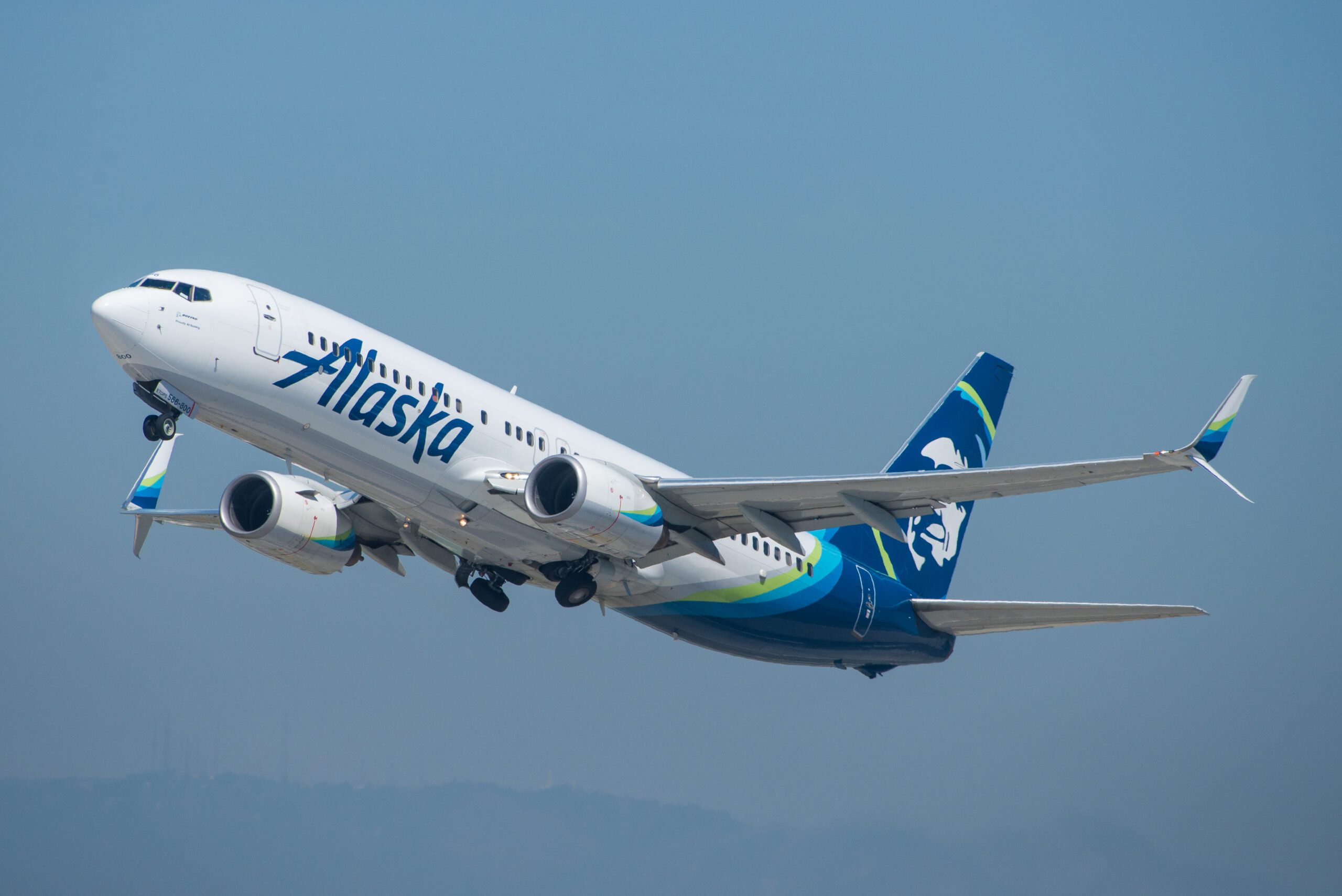A recent Alaska Airlines 737 collision occurred at Seattle-Tacoma International Airport (SEA), when a catering truck struck the tail of an Alaska Airlines Boeing 737-700. The truck maintained speed before hitting the plane, raising concerns that the driver may have been distracted.
Alaska Airlines 737 collision Details
The footage, shared on Instagram by users airport_ramplife and aviation_things, offers two different perspectives on the event. In the video (above), an LSG Sky Chefs catering truck can be seen approaching the rear of the aircraft at a significant speed. Despite nearing the jet, the truck maintained its velocity, eventually colliding with the plane’s aft, just beneath the tail and horizontal stabilizer.
Join us on TELEGRAM for the Latest Aviation Updates fresh to your phone.
There remains uncertainty about whether the aircraft was in the process of being pushed back from the gate or was being pulled into position. Notably, the plane’s beacon light was off, although the tug’s lights were on, and wing walkers were stationed on both sides of the aircraft at the time.
Driver Accountability
The video, which attracted over 140 comments, sparked debates among viewers regarding who was responsible for the incident. Some blamed the driver of the truck, while others pointed fingers at the wing walker stationed on the captain’s side of the plane, suggesting that they were not in the proper position to prevent the crash.
One commenter expressed certainty that the driver was distracted:
“The wing walker not at the end where he supposed to be and I’m 100% positive that the driver was on his phone I seen it live many times working on the ramp…”
Another individual, claiming to be a co-worker at the catering company, implied that the driver was immediately terminated following the collision:
“Fired as soon as it [the truck] made contact with the aircraft… might as well just walk away.”
Alaska Airlines 737 collision Aircraft

Although official confirmation is still pending, it is believed that the aircraft involved may have been N614AS, a Boeing 737-700. This assumption is based on flight data and the distinct characteristics of the plane, such as the cockpit’s upper windows, also known as “eyebrows,” which are unique to this variant in Alaska Airlines’ fleet. The last known flight of this particular plane was on September 22nd from Portland International Airport (PDX), operating as AS9810. This flight number typically indicates that no passengers were onboard and the plane was being ferried.
As of the latest reports, this 24.9-year-old aircraft is listed as “parked and undergoing maintenance,” likely as a result of the damage sustained during the incident.
Financial Consequences of Ground Incidents
Alaska Airlines 737 collision highlights a broader issue in the aviation industry—ground support equipment (GSE) incidents. According to Aviation Pros, from 2016 to 2022, more than 26% of aircraft damage occurred due to GSE collisions, particularly during towing or pushback operations. The financial repercussions of such events are significant, with repairs often ranging between $50,000 and $100,000, depending on the extent of the damage.
- Featured image by BriYYZ via Wikimedia
Youssef Yahya is the CEO and Founder of Aviation for Aviators. He also serves as the Chief-in-Editor of the platform’s website, where he shares his passion for aviation and provides valuable resources for aviation enthusiasts and professionals alike. His love for aviation and entrepreneurial spirit drive him to create innovative solutions, making Aviation for Aviators a unique resource in the aviation sector.
You might also like:
- FAA Investigation on the health of 4800 Army Veteran Pilots (Including 600 Airline pilots)
- Antonov An-225 Mriya: The Plane With 32 Wheels
- Will You Feel Safer Knowing That the Crew on Your Flight Are All Vaccinated?
- The super cute “super guppy” aircraft.
- De-icing : why and how
Discover more from Aviation for Aviators
Subscribe to get the latest posts sent to your email.

